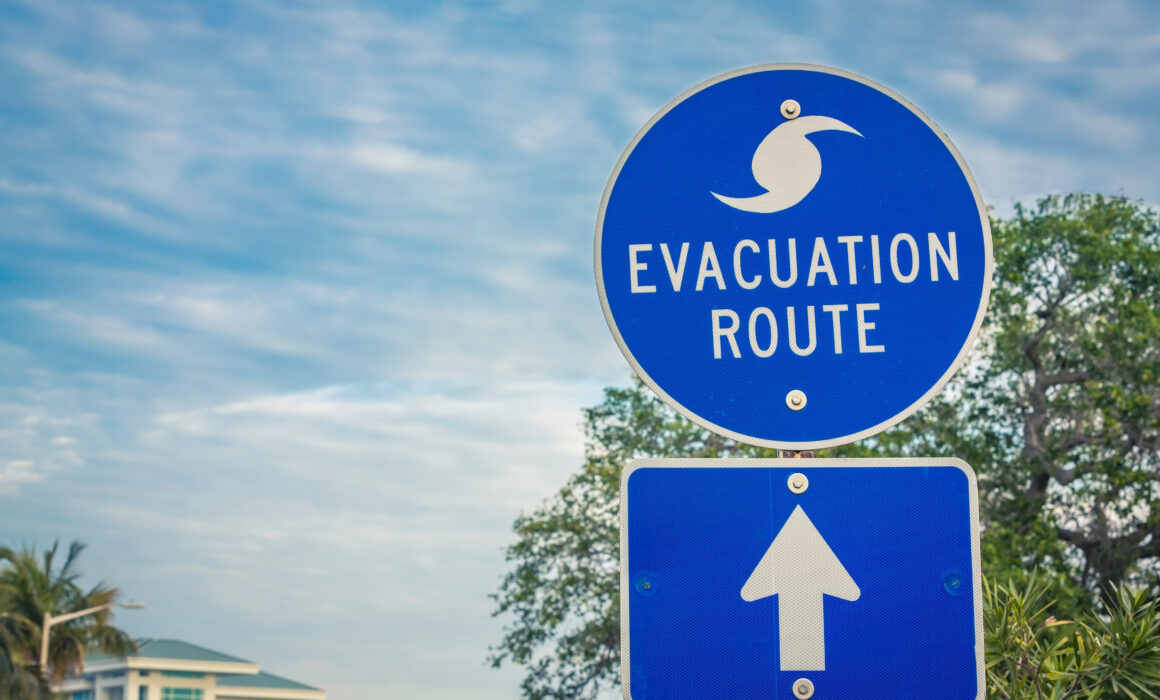Preparing for a Possible Evacuation During Hurricane Season
Hurricane season in Florida can be a stressful time, with the potential for powerful storms that may require evacuation. Preparing ahead of time can make a significant difference in ensuring your safety and protecting your belongings. Boggs Law Group is here to provide essential tips to help you and your family prepare for a possible evacuation.
1. Stay Informed
- Monitor Weather Updates: Regularly check reliable sources such as the National Hurricane Center, local news, and weather apps for updates on storm developments.
- Know Your Evacuation Zone: Determine your evacuation zone by visiting the Florida Division of Emergency Management website or your local emergency management office.
2. Create an Emergency Plan
- Family Communication Plan: Establish a communication plan with your family. Decide on a meeting place and make sure everyone knows how to contact each other.
- Designate a Safe Location: Identify a safe location where you can stay if you need to evacuate. This could be a friend’s or relative’s home, a hotel, or a designated evacuation shelter.
3. Prepare an Emergency Kit
- Essentials: Pack enough water, non-perishable food, medications, and personal hygiene items to last at least three days.
- Important Documents: Gather important documents such as identification, insurance policies, medical records, and bank information. Keep them in a waterproof container.
- Clothing and Supplies: Include clothing, blankets, flashlights, batteries, a first aid kit, and any necessary items for infants, elderly family members, or pets.
4. Secure Your Home
- Protect Windows and Doors: Install storm shutters or use plywood to cover windows. Secure all doors, including garage doors, to protect against high winds.
- Outdoor Items: Bring in outdoor furniture, decorations, and any other items that could become projectiles in high winds.
- Utilities: Know how to turn off your utilities (gas, water, electricity) in case of an evacuation. This can prevent damage and potential hazards.
5. Plan for Your Pets
- Pet-Friendly Shelters: Research pet-friendly shelters or accommodations in advance. Many public shelters do not allow pets.
- Pet Supplies: Pack a pet emergency kit with food, water, medications, identification, and comfort items for your pets.
6. Stay Connected
- Emergency Alerts: Sign up for local emergency alerts to receive real-time information on evacuation orders and storm updates.
- Social Media: Follow local authorities and emergency management offices on social media for the latest news and instructions.
7. Have a Transportation Plan
- Vehicle Readiness: Keep your vehicle fueled and in good condition. Have a full tank of gas and check oil, tires, and other essential fluids.
- Public Transportation: If you don’t have a personal vehicle, plan your transportation in advance. Know the routes and schedules of local public transportation that can be used during evacuations.
8. Know Your Rights
- Insurance Coverage: Review your insurance policies to understand your coverage in the event of a hurricane. Ensure that your policy is up to date and that you have sufficient coverage.
- Legal Assistance: In the aftermath of a hurricane, dealing with insurance claims and property damage can be overwhelming. Boggs Law Group is here to assist you with any legal issues you may encounter, from filing claims to resolving disputes.
Conclusion
Preparing for a possible evacuation during hurricane season is crucial for your safety and peace of mind. By staying informed, creating a comprehensive emergency plan, and knowing your rights, you can face the uncertainties of hurricane season with confidence. If you need any legal assistance or have questions about your rights and insurance claims, Boggs Law Group is here to help. Stay safe and prepared this hurricane season.
For more information or to schedule a consultation, contact Boggs Law Group today.

